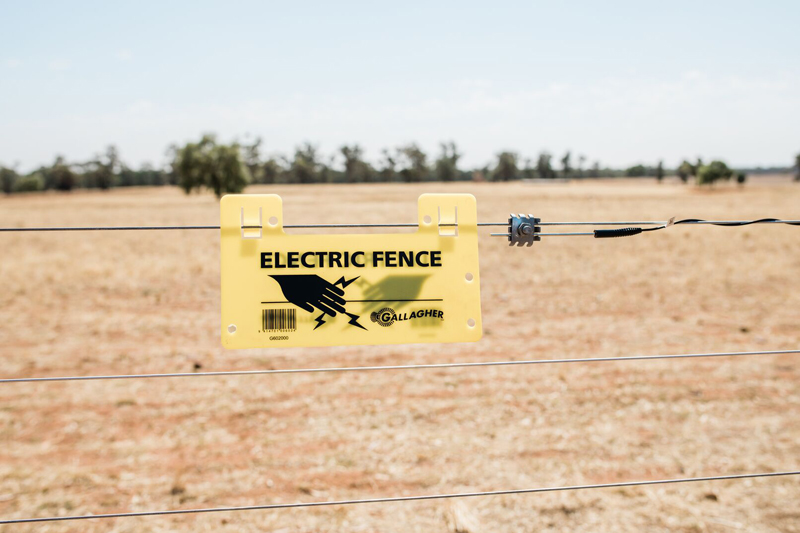Oregon rancher combats - recovers from wildfires
A little over a decade ago, Mike Greeley, along with his neighboring ranchers, teamed up to form Jordan Valley, Oregon's first Rural Fire Protection Association (RFPA).
Saturday, 01 January, 2022

A little over a decade ago, Mike Greeley, along with his neighboring ranchers, teamed up to form Jordan Valley, Oregon's first Rural Fire Protection Association (RFPA). Forming an RFPA offered Greeley and his counterparts an opportunity to protect their rural properties in an area that might otherwise receive little to no fire protection for private lands
"Before, we were dependent on the BLM (Bureau of Land Management) to come fight fires and try to save our range ground before the fires got to our private ground," says Greeley.
Along with Oregon, rural and rangeland fire protection associations also exist in many other states. While these grassroots non-profit organizations operate slightly different in each state, their main purpose is to allow their members to act as the first line of defense against rangeland wildfire threats in their communities.
As part of their membership in the RFPA, ranchers and other landowners, like Greeley and his neighbors, receive safety and wildfire fighting training, as well as necessary equipment and other resources. In addition, they work together with state and federal agencies like the BLM and U.S. Forest Service to fight fire threats.
In Greeley's area of arid eastern Oregon, private properties like his on Mahogany Mountain are scattered in between large tracts of BLM ground dotted with juniper and sagebrush. Having the ability to respond to fire threats quickly and stop them before they get out of hand is vital to maintaining their family operations in these remote locations.
Greeley recalls a wildfire that occurred shortly after the RFPA became organized.
"I was in town getting parts and I saw the smoke from the valley, which is about 60 miles from where the ranch is," Greeley says. "I saw the smoke and raced home."
Upon arriving, Greeley discovered fire, ignited by lightning strikes, had engulfed not only his neighbor's pasture, but his as well. Thanks to being members of the RFPA, Greeley and the other ranchers affected had the same jurisdiction as BLM to fight the fires for the first 24-hours.
Greeley explains, "Between me and the neighbor, we saved our private ground that night."
"We also felt really good because we were saving a huge amount of wildlife habitat that would have otherwise burned up," says Greeley.
Since founding the RFPA, Greeley notes the group has continued to combat area fires. For the past few years especially, the fire hazard has been extremely high due to Oregon's severe drought.
"When grass is that dry, one spark will ignite the whole country," says Greeley.
Most recently, Greeley and his local RFPA members helped the BLM combat the Leslie Gulch fire in the summer of 2015. The groups worked together over the course of several weeks to eventually contain the fire which burned more than 8,000-acres of rangeland.
In the aftermath, Greeley sought assistance from the Natural Resource Conservation Service (NRCS) on how best to manage and restore the burned acres. He enrolled in NRCS's Conservation Stewardship Program (CSP), a five-year contract that includes a number of important management practices that benefit rangeland health.
As part of this 5-year CSP contract, Greeley adopted a prescribed grazing plan, in addition to planning improvement measures to recover some of his private acres which burnt. Among the first post-fire recovery actions he took this past fall, was to restore a windbreak that had previously burnt. Once re-established, it will serve as a shelterbelt for wildlife, as well as his livestock.
This year, Greeley is also planning to carry out a post-fire reseeding of native plants on approximately 60-acres of his property that burnt during the 2015 Leslie Gulch fire. To allow the new plants to establish, he must defer grazing on the area for two years. After native range plants have returned, the once-burnt acreage will again be able to be used for grazing, as well as provide habitat for wildlife.
While recovering from wildfire is an ongoing process, says Mike, he's making progress.
"We're doing a better job on the range than we did in the past by rotating pastures and working with federal agencies to come up with better plans, instead of sticking to how we always did things before," says Mike. "Through progressive thinking and a willingness to try new things, we work together as a team."
Starting the RFPA and seeking help from experts, like those at NRCS, on how best to restore burned grazing lands, says Greeley, has made a tremendous difference.
Authored byJesse Bussard, an agricultural writer based in Bozeman, Montana.